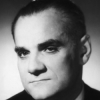Alberto Moravia

Alberto Moravia
Alberto Moravia, born Alberto Pincherle, was an Italian novelist and journalist. His novels explored matters of modern sexuality, social alienation and existentialism. Moravia is best known for his debut novel Gli indifferentiand for the anti-fascist novel Il Conformista, the basis for the film The Conformistdirected by Bernardo Bertolucci. Other novels of his adapted for the cinema are Agostino, filmed with the same title by Mauro Bolognini in 1962; Il disprezzo, filmed by Jean-Luc Godard as Le Mépris; La Noia, filmed...
NationalityItalian
ProfessionNovelist
Date of Birth28 November 1907
CountryItaly
Our ideals, laws and customs should be based on the proposition that each generation in turn becomes the custodian rather than the absolute owner of our resources - and each generation has the obligation to pass this inheritance on in the future.
...my boredom might be described as a malady affecting external objects and consisting of a withering process; an almost instantaneous loss of vitality--just as though one saw a flower change in a few seconds from a bud to decay and dust.
The less one notices happiness, the greater it is.
The novel as we knew it in the nineteenth century was killed off by Proust and Joyce.
Good writers are monotonous, like good composers. They keep trying to perfect the one problem they were born to understand.
Dictatorships are one-way streets. Democracy boasts two-way traffic.
It is what we are forced to do that forms our character, not what we do of our own free will.
Yes, one uses what one knows, but autobiography means something else. I should never be able to write a real autobiography; I always end by falsifying and fictionalizing—I’m a liar, in fact. That means I’m a novelist, after all. I write about what I know.
In life there are no problems, that is, objective and external choices; there is only the life which we do not resolve as a problem but which we live as an experience, whatever the final result may be.
An uncertain evil causes anxiety because, at the bottom of one's heart, one goes on hoping till the last moment that it may not be true; a certain evil, on the other hand, instills, for a time, a kind of dreary tranquillity.
I do not foresee a time when I shall feel that I have nothing to say.
A writer survives in spite of his beliefs.
Modern man-whether in the womb of the masses, or with his workmates, or with his family, or alone-can never for one moment forget that he is living in a world in which he is a means and whose end is not his business.
Every true writer is like a bird; he repeats the same song, the same theme, all his life. For me, this theme as always been revolt.